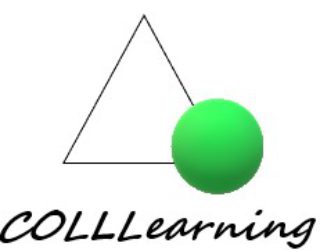Measuring Functional Literacy and Numeracy for Lifelong Learning
The challenge lies to expand the PIAAC framework to better reflect the situation and needs of countries with lower levels of literacy and numeracy. This is the job of the UIS. We are looking at other assessments, such as the World Bank’s STEP Skills Measurement Program (STEP), UNESCO’s Literacy Assessment and Monitoring Programme (LAMP), and the Adult Literacy and Life Skills Survey (ALL), as well as national adult assessments in, for example, Bangladesh, Germany and Kenya. The aim is to extend the continuum of literacy and numeracy skills that will be captured in the framework. This will require work between various agencies and experts, moderated by UNESCO Institute for Statistics (UIS), to ensure that comparisons between assessments are reasonably valid.
International Literacy Day
50th anniversary celebrations of International Literacy Day 2016 launched
Reading the Past, Writing the Future
“The world has changed since 1966 – but our determination to provide every woman and man with the skills, capacities and opportunities to become everything they wish, in dignity and respect, remains as firm as ever. Literacy is a foundation to build a more sustainable future for all.” UNESCO Director-General
New Global Alliance for Literacy pledges partnership and innovation to boost progress
“A new global partnership for literacy aims to bring governments, NGOs, academic institutions and the private sector together to look afresh at how to boost progress.” UIL, UNESCO Institute for Lifelong Learning.
Bangladesh : Literacy, skills and lifelong learning
Progress in literacy has been made, but at a slow pace. Good news is that Bangladesh has made progress in various levels of literacy.
However, the rate of progress is rather slow – only 0.7 per cent per year. The progress rate was relatively better in reading and writing skills but very poor in numeracy and application of the basics. Slower progress in latter two components slowed down the overall progress in literacy. At the current rate of progress, Bangladesh would take 44 more years to have an initial level of literacy skills for all its citizens and 78 years to attain the advanced level.
Literacy in Multilingual and Multicultural Contexts: Effective Approaches to Adult Learning and Education
Literacy for Life Recognizes Volunteers, Learners in Historic Triangle Community
The Literacy for Life headquarters has improved dramatically in recent years with its opening in the School of Education. This space, which includes private offices, a classroom, a computer lab and a large room full of cubicles to facilitate one-on-one tutoring, represents a marked improvement over the original facilities in the old School of Education building.
With these updated workspaces and resources, Literacy for Life has been able to continue to increase its offerings, which now include not only reading and writing classes but also government and civics classes, computer literacy classes, money management classes, career readiness classes, GED preparation classes and health literacy classes.
The role of libraries in addressing literacy challenges in the 21st century
UIL, April 2016
http://www.uil.unesco.org/literacy-and-basic-skills/role-libraries-addressing-literacy-challenges-21st-century
Minnesota Reading Corps helps students, deserves support
A proven reading-intervention program called the Minnesota Reading Corps for children age 3 to grade three identified as not ready to read.
The program was validated recently by the results of a study conducted by the University of Chicago. The study evaluated the reading readiness and proficiency of students who were and were not tutored by the Minnesota Reading Corps.
Literacy Powerline Becomes Part of the National Center for Families Learning
“NCFL, a national nonprofit organization dedicated to helping adults and children learn together, creates and deploys innovative programs and strategies that support lea rning, literacy , and family engagement. It has worked for several years in partnership with Literacy Powerline, which leverages the power of linking stakeholders, neighborhoods , and services to increase literacy levels through coalition building.”
European Basic Skills Network
Malta : Newly launched strategy aims to half early school leaving by 2020
In 2013, Malta had a rate of 20.9%, which was the second highest in the EU after Spain. Through an EU model based on the three pillars of prevention, intervention and compensation, Malta set an ambitious aim to reach 10% by 2020.
Source : MaltaToday
Michael Gove promises to abolish illiteracy and innumeracy in UK
Education secretary’s pledge follows George Osborne’s commitment to restore Britain to full employment
“The education secretary, Michael Gove, has promised to abolish illiteracy and innumeracy in the UK, following George Osborne’s pledge this week to create a full employment society.”
Source : The Gardian
The Role of NGOs on Literacy in the context of the World Conference on Education for All, Jomtien, Thailand, March 1990.
A speech delivered by Alfonso E. Lizarzaburu in March 1990 to the participants in the Round Table Nº 20.
Reading it today, 23 years after the World Conference on Education for All, could we say that any resemblance to reality is purely coincidental?
Unfortunately, this is not the case. The second World report on adult learning and education, just published by the UNESCO Institute for Lifelong Learning (UIL), seems to show us that “Men learn from history that men NEVER learn from history”.
The challenge is in front of us. Will we have the lucidity, the courage and the political will to give us the means of our ambitions that is to build a world where “recognition of the inherent dignity and of the equal and inalienable rights of all members of the human family is the foundations of freedom, justice and peace in the world?” (United Nations, Universal Declaration of Human Rights, Preamble, 10 December 1948).
The full text
CMA AELL Role_NGOs_Literacy_Jomtiem_1990 End 131113 (1)
World Literacy Summit 2014
Following the success of our inaugural Summit last year, we will convene again in Oxford, United Kingdom, from 14-16 April 2014. World Literacy Summit 2014 is an initiative of the World Literacy Foundation in partnership with Oxford University Press and the University of Oxford.
Education and literacy specialists from all over the world will gather to share knowledge and advance towards our ultimate goal of eradicating illiteracy. The Summit offers a wide range of practitioners from education, government and business to work together for a better future.
The World Literacy Summit will provide you with a valuable opportunity to raise your profile and gain insights from other experts and pioneers in your field. The Summit will also give a focus on how the internet and new digital technologies are bringing change the education landscape around the globe.
As an eminent academic in the field of education and literacy we believe your expertise is significant to achieving the aims of the World Literacy Summit. You would make a valuable contribution to the 2014 event.
There will be a variety of both formal and informal opportunities at the Summit to which you may wish to contribute. We will be inviting key delegates to make presentations to both the main assembly and breakout sessions. There will also be opportunities to lead workshops, facilitate sessions and chair roundtable discussions. The Summit will raise the profile of work being carried out by you and other outstanding education and literacy initiatives. Delegates will share their experiences and expertise over the three days we are in session.
dvv international, UNESCO, UIL and ICAE Launch 2nd Global Report for Adult Learning and Education
The Report showed that despite the global progress with regards to literacy, disadvantaged populations and individuals are still excluded from quality learning provision. As such, the current Report places a special focus on adult literacy as a foundation for adult learning and education, in addition to other topics such as promoting, financing and conducting quality assurance for adult education programs and strategies.
UIL Deputy Director Carolyn Medel-Anonuevo pointed out that literacy courses are only the first step to lifelong learning and that they should prepare people for future learning by encouraging skills to critically analyse information and take decisions.
Namibia: Programme Empowers Over 500 000
“Officiating during the launch of Adult Learners’ Week (ALW) and International Literacy Day (ILD) celebrated from September 1- 8, Dr David Namwandi, the Minister of Education said Namibia should continue investing in its main assets – its people – by investing massively in education. He said not investing properly in education now would mean making a “blunder of our life”.”
Ohengwena literacy on the up
EENHANA – The literacy rate in the Ohangwena Region has reached 86 percent compared to the overall literacy rate of 89 percent nationally.
Literacy supports lifelong learning
“Have you ever considered what it would be like if you couldn’t read well enough to understand a newspaper article? Have you thought about what it would be like if you had a difficult time using a computer to do a simple task like emailing someone? Or if you couldn’t do math well enough to figure out a reliable household budget?
In British Columbia those scenarios are true for about 40 per cent of the population. Literacy—or the lack thereof—is a problem in this province, and it’s threatening our collective future.”
A life of literacy
“Know, The Journal of lifelong Learning,” is a project of Literacyworks, an organization formed in 2001 and dedicated to strengthening the quality of adult literacy, parent education, and workforce development programs throughout Sonoma County.
Effective Literacy Practices
In order to encourage all key actors to share their experiences and gain inspiration from innovative approaches in the field of literacy, the UIL’s LitBase provides a selection of effective adult literacy and numeracy programmes from all regions of the world.

